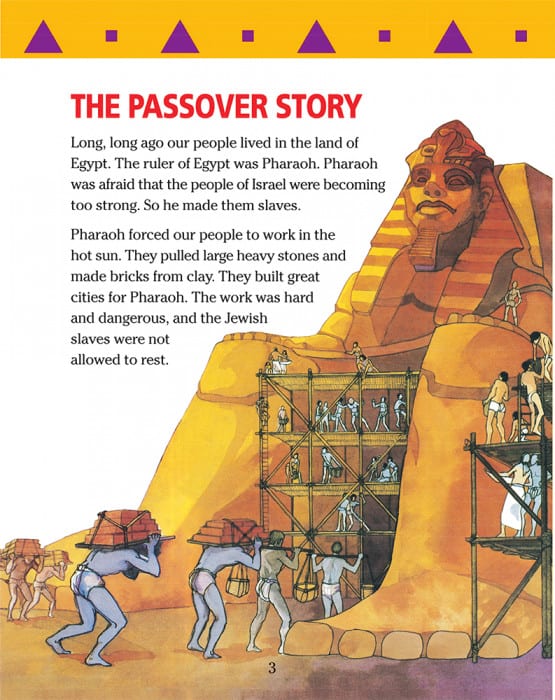Embrace the Joy of Passover: A Family Guide to Celebration
Welcome, amazing moms and dads, to a heartwarming journey of celebrating Passover with your little ones! Passover, or Pesach, is a time of remembrance and joy, a fabulous opportunity to engage with your family’s heritage and create cherished memories. With our complete guide, you’ll find wonderful ways to introduce the traditions of Passover to your kids, making the holiday both meaningful and super fun!
Understanding Passover: Sharing the Story
First things first, let’s chat about the foundation of Passover! It’s a festival that commemorates the exodus of the Israelites from Egypt and their transition from slavery to freedom. The holiday is rich with historical significance and spiritual lessons, making it an excellent teaching moment for your kiddos.
But how do you make such an ancient story relatable to your modern munchkins? Tailor the narrative to their understanding and pepper it with engaging elements. Storybooks, videos, and interactive storytelling apps can be your allies in bringing the Passover story to life for your children!
Pre-Passover Prep: Sparking Excitement
As the calendar counts down to the big day, there’s so much to do, and including your children in the preparations can amplify their excitement. From cleaning out every crumb of chametz (leavened bread) to setting up your Seder plate, there’s a rainbow of activities waiting for your little ones’ participation.
- Arts and Crafts: Set up a crafting day to create your own Seder plate, Elijah’s cup, or even a hand-made afikoman bag. These activities allow kids to put a personal touch on the holiday and learn about the symbols of Passover in a hands-on way.
- Cooking Together: Passover cooking can be a blast! Whether it’s baking matzah from scratch or whipping up a batch of charoset, welcome your children into the kitchen for some delicious fun.
The Spring Cleaning Challenge: Make It Fun!
The search and removal of chametz is a fabulous way to do some serious spring-cleaning and can easily turn into a game. Organize a family chametz scavenger hunt to sweep out old leaven. Offer prizes for the most chametz found to spice up the challenge. Just remember – safety first when kids help clean!
Setting the Stage for Seder Night
The Seder is the centerpiece of Passover celebrations, a time to gather everyone around the table for stories, songs, and sharing. Preparing your home and table is crucial, and your children can be decorators-in-chief! Encourage them to design place cards, prepare props for the Ten Plagues, or help arrange the Seder plate.
Learning the Four Questions, or Ma Nishtana, can also be an empowering task for your kids. These questions are traditionally asked by the youngest at the table and can spark curiosity and conversation. Practice with them days ahead, so they’re confident and excited for their special role.
Remember, Passover festivities last for eight days, so pacing activities and embracing each day’s uniqueness can ensure the joy lasts all week long! Stay tuned for even more ways to transform your Passover into an unforgettable family adventure…
By now, you must be brimming with excitement and your Pre-Passover checklist is growing with fun-filled, educational, and meaningful activities. But don’t worry, we’re just getting warmed up! Our guide will delve even deeper into making the Seder interactive, exploring Passover crafts and recipes, and establishing new family traditions that honor the past while welcoming the future. So, stick around, because this Passover is going to be one for the books!

Five Essential Things Parents Should Know When Preparing for Passover
1. The Importance of Planning Ahead
Getting ready for Passover can seem overwhelming, but don’t fret! Start off by breaking down tasks into manageable chunks and spread them out over the weeks leading up to the holiday. Draft a to-do list that includes shopping for Passover foods, ‘koshering’ the kitchen, and planning your family Seder. Early preparation will save you from last-minute scrambles and ensure a smoother celebration.
2. Know Your Kosher
Passover has unique dietary laws, and it’s key to familiarize yourself with them. Anything leavened is a no-go, so look out for Kosher for Passover labels when shopping. Don’t hesitate to get your kids involved by turning it into a learning activity as you hunt for appropriate products. Plus, many grocery stores have special Passover sections, making shopping easier and more educational!
3. Engage with Educational Resources
Beyond telling the Exodus story, Passover is a golden opportunity for engaging your children in Jewish history and traditions. Dive into the vast sea of educational resources—books, videos, printable games about Passover designed for kids. Make the learning process interactive and fun, sparking questions and conversations about their heritage.
4. Tradition with a Twist
Passover traditions are precious, but there’s always room for personalization! Create new traditions that reflect your family’s uniqueness. For instance, include a special family story during the Seder or incorporate a new song. Making your own customs can help make the holiday more memorable and personal for your children.
5. Seder Participation for All
The Seder shouldn’t be a spectator sport for the little ones. Involve your children as much as possible. Assign simple tasks, like pouring the wine (or grape juice) for each of the four cups or having them act out parts of the Passover story. Inclusivity at the Seder table can cultivate a sense of belonging and pride in their family’s rituals.
With these five foundational tips, you and your kiddos are well on your way to an exceptional Passover celebration. Just remember, the key ingredients are love, engagement, and a dash of creativity. Get ready to step into a holiday bursting with learning, spirituality, and boundless family fun. Happy Passover preparations!
See more great Things to Do with Kids in New Zealand here. For more information see here
Disclaimer
The articles available via our website provide general information only and we strongly urge readers to exercise caution and conduct their own thorough research and fact-checking. The information presented should not be taken as absolute truth, and, to the maximum extent permitted by law, we will not be held liable for any inaccuracies or errors in the content. It is essential for individuals to independently verify and validate the information before making any decisions or taking any actions based on the articles.




